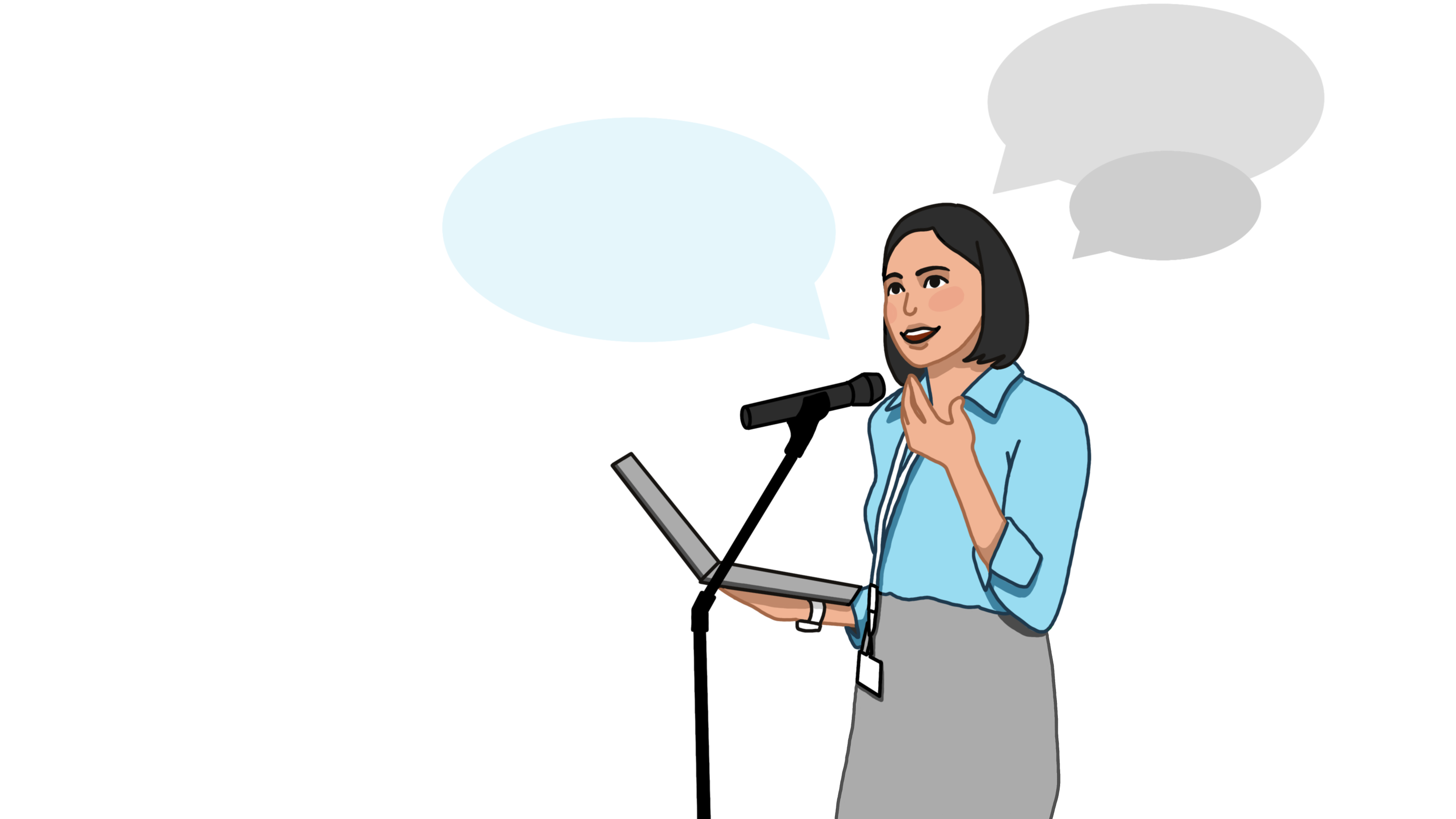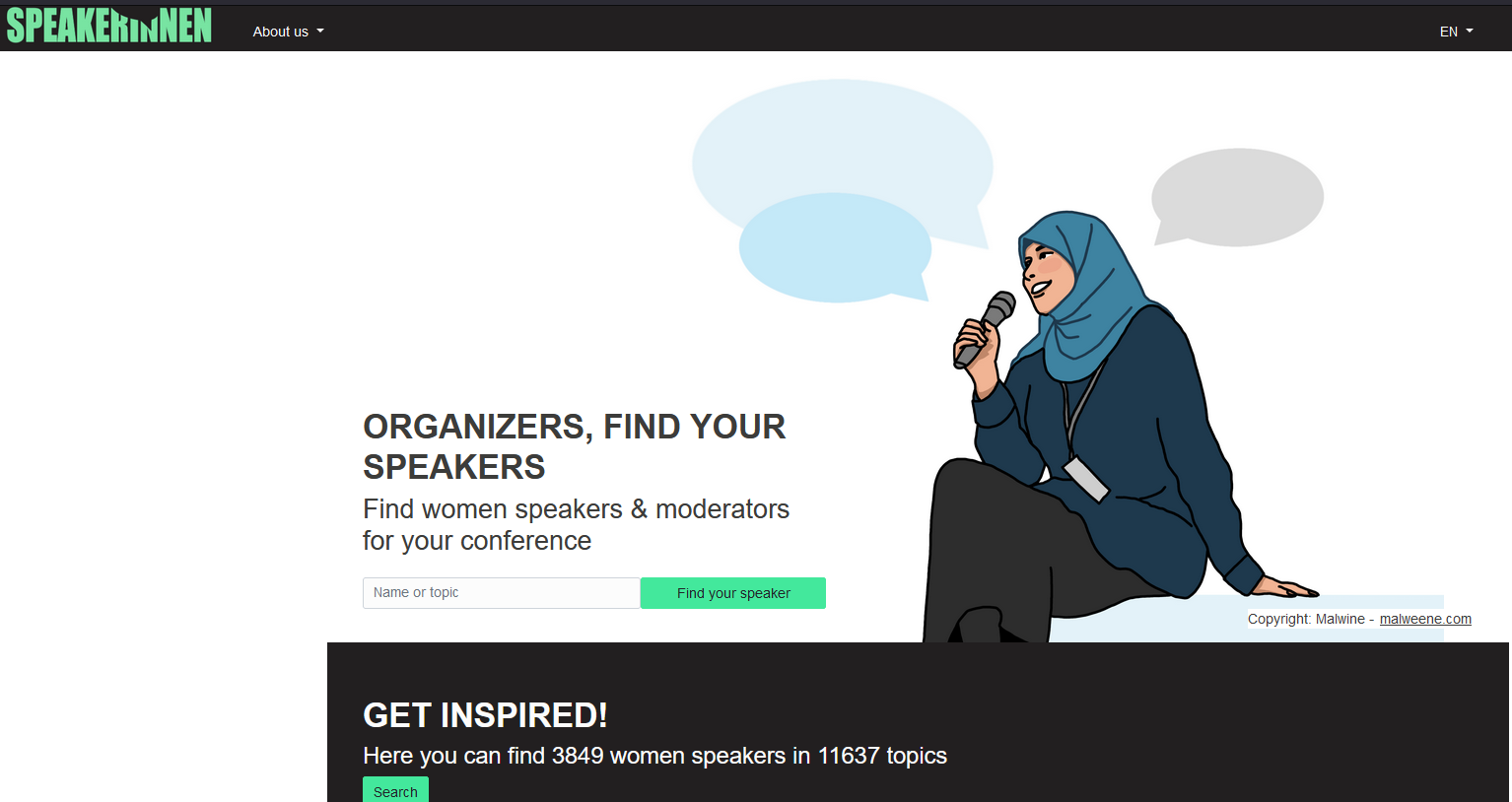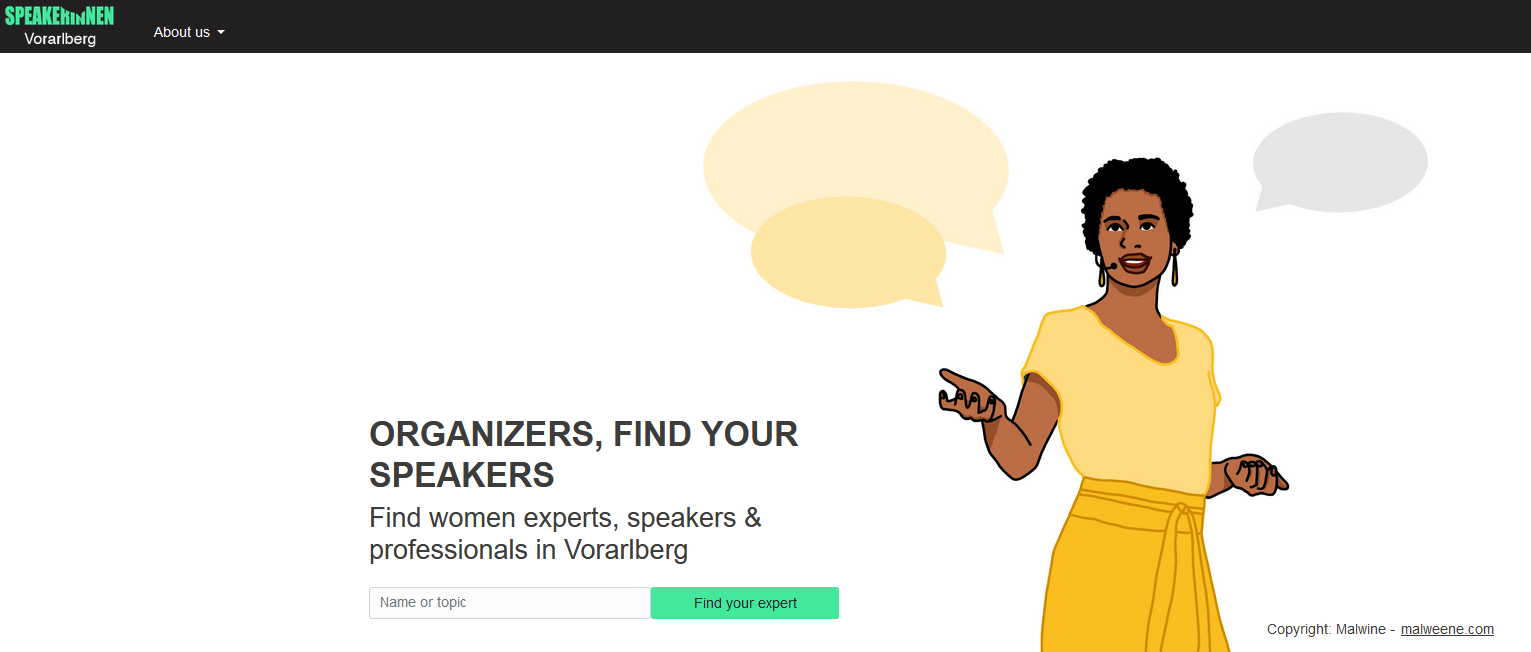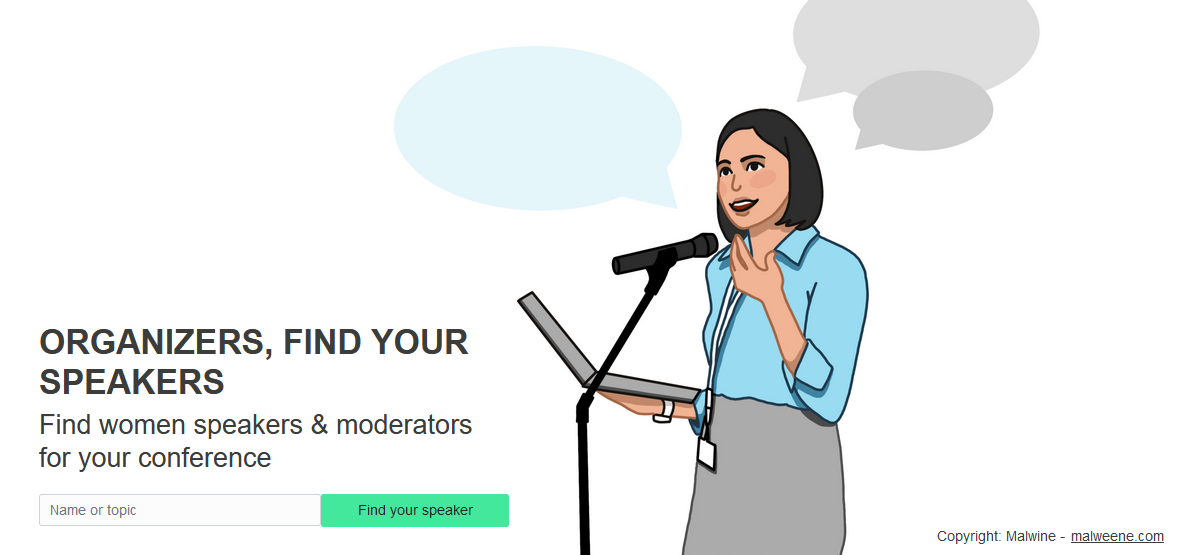04.03.2023 - 13:55 actions
International Women's Day: Female Doctors on Stage!
German Dental Congress 2022: 27 men, 9 women. Annual Conference of the German Society for Immunology 2022: 26 men, 14 women. Keynote Speaker at the German Cancer Congress 2022: 17 men, 2 women.
As in many industries, women are in the minority at medical congresses and conferences - at least in terms of their presence on stage. Yet they are represented in all medical professions with their expertise, in the meantime even in the majority. In order to strengthen the visibility of female doctors and women in the health sector, Speakerinnen.org, Prof. Dr. Mandy Mangler and the Round Table "Women in Health Care" are launching the campaign "Ärztinnen auf die Bühne!" (Female Doctors on Stage!) for International Women's Day 2023.
Capaign website "Ärztinnen auf die Bühne!" (in German language)
The alliance calls on all female experts in medicine and health care to register with their expertise at Speakerinnen.org. This will make it easier for event organisers and journalists to find female doctors, dentists and all other representatives of the medical professions and organisations. Speakerinnen.org is a free offer - for women as well as for event organisations. Shortly before 8 March 2023, a total of almost 4,000 women with diverse skills in numerous fields are registered at Speakerinnen.org.

Illustrations on Speakerinnen.org and here in the blog by Malwine
"Even in the health care sector, where the proportion of women in all professions is very high, congress organisers often state that they have not found a woman for the podium, workshops or training labs," says Mandy Schoßig of Speakerinnen.org, the platform for female experts, speakers, moderators and presenters. "We want to change that!"
"Studies show that gender-balanced staffing of leadership positions in medicine leads to more successful treatment," says Prof. Dr. Mandy Mangler, chief physician of the gynaecology clinic at the Auguste-Viktoria-Klinikum in Berlin. "The German Association of Women Doctors has analysed the proportion of women in clinical chairs at state universities - it is still only 13 per cent."
"More women in leadership positions on all medical boards broadens the view and can thus change rules towards a fairer health care or even a fairer society," adds Dr Christiane Groß, President of the German Medical Women’s Association (Deutscher Ärztinnenbund e.V.).
More visibility for women in the health sector.
The Round Table "Women in the Health Care System" is a cooperation partner for the campaign "Female Doctors on Stage!". It points out that the proportion of women in the health sector is constantly at 75 percent. Nevertheless, women are clearly underrepresented there in leadership positions as well as in their public visibility. Studies show that only about one-fifth of top management positions in hospitals are held by women, with a recent downward trend. This also applies to almost all areas of the health system, including associations of panel doctors (dentists), health insurance funds and health care companies.
"As representatives of a total of 13 women's networks and organisations in the healthcare sector, we are committed to ensuring that women not only play their part in the social context, but also have an equal say in determining and shaping it," emphasise Cornelia Wanke, Executive Director at Healthcare Frauen e.V. and Co-Chair of Spitzenfrauen Gesundheit e.V., as well as Dr Rebecca Otto, President of Dentista e.V. "Together, we are helping to make the many excellent women in the healthcare sector more visible and give them a platform."
About our cooperation partners
Prof. Dr. Mandy Mangler is chief physician at two gynaecology clinics at Vivantes. In the Tagesspiegel's gynaecology podcast "Gyncast" she discusses a wide range of women's health topics. In 2022, she was awarded the Berlin Women's Prize for her commitment to equality and diversity in medicine.
The Women in Health Round Table consists of a total of 13 women's networks and organisations. It is committed to the visibility of women in all areas of health care and in politics. Members of the Round Table are: Dentista e.V. - Association of Women Dentists, Deutscher Ärztinnenbund e.V., FidAR - Frauen in die Aufsichtsräte e.V., Healthcare Frauen e.V., Institut für Gender-Gesundheit e.V. , Pro Quote Medizin, #SheHealth - Women in digital Health, Spitzenfrauen Gesundheit e.V., Verband der ZahnÄrztinnen plus e.V.



